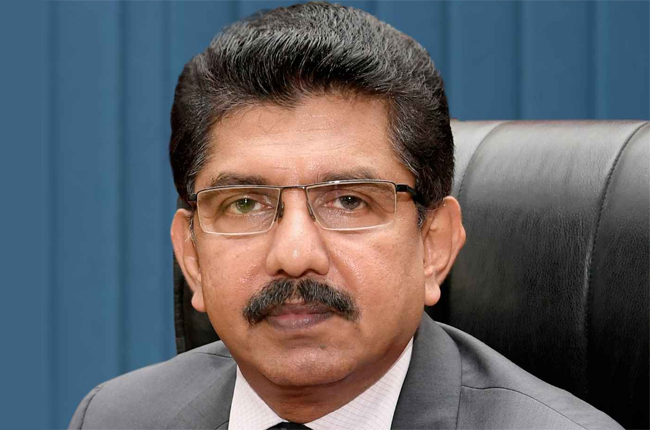Novel variants of SARS-CoV-2 virus that cause COVID-19 disease have not been detected in Sri Lanka, Health Ministry Secretary Dr. Anil Jasinghe said yesterday.
“The variant currently in circulation, first reported in many countries in 2024, is a sub-lineage of a previously known genetic variant. This same variant was detected in Sri Lanka in 2024, and tests conducted by the Medical Research Institute (MRI) in May 2025 confirmed the continued presence of these sub-lineages. These are not novel variants, and no evidence of increased severity or complications has been observed,” he said.
Issuing a special media statement on the current COVID-19 situation in Sri Lanka, Dr. Jasinghe yesterday said that the World Health Organization (WHO) has reported a global increase in the activity of the SARS-CoV-2 virus, the causative agent of COVID-19, since February 2025.
According to the International Respiratory Surveillance System, several countries, particularly in Asia, have reported a notable rise in COVID-19 cases over the recent months.
Sri Lankan health authorities have acknowledged this trend, reassuring the public that no new variant has emerged, and emphasising the importance of vigilance, not panic.
“In May 2023, the WHO officially declared the end of the global pandemic status of COVID-19. Since then, it has been classified and treated as an endemic disease, similar to other common respiratory infections,” he said. Dr. Jasinghe further explained that genetic mutations of the SARS-CoV-2 virus are a known phenomenon during its transmission.
According to Sri Lanka’s Respiratory Surveillance System, in 2024, 3 percent of respiratory specimens tested for SARS-CoV-2 yielded positive results, with a peak of 9.6 percent in May 2024. For 2025 so far, the average positivity rate is around 2 percent, with a slight increase noted in the present period.
“We observed a rise in reported COVID-19 cases in May 2024 and again in May 2025. However, the WHO has not drawn any definitive conclusions about future transmission patterns. Monitoring and research are actively ongoing,” said Dr. Jasinghe.
The Health Secretary also noted that seasonal increases in respiratory illnesses, such as influenza, are common during this time of year, especially due to prevailing climatic conditions.
“Our health authorities remain vigilant in tracking disease trends. The public need not panic unnecessarily. If someone experiences fever or respiratory symptoms, there is no need for hospital admission out of fear. However, medical attention should be sought if breathing difficulties occur,” he said.
Dr. Jasinghe urged the public to practice good respiratory etiquette and health habits to minimise the spread of COVID-19 and other viral respiratory infections. These include covering the mouth and nose with a tissue when coughing or sneezing, avoiding unnecessary contact with the face, washing hands properly or using alcohol-based hand sanitizers, avoiding touching the face with unclean hands, wearing facemasks if symptomatic and avoiding crowded public settings unless necessary.
Special emphasis was placed on the need to protect high-risk groups.
“Older adults, pregnant women, and young children, whose immune systems are compromised or still developing, need special attention,” said Dr. Jasinghe.
“Those with chronic conditions, including heart disease, chronic respiratory illnesses, diabetes, kidney disease, cancer, and those on immunosuppressive therapy are at increased risk and require additional protection.”














